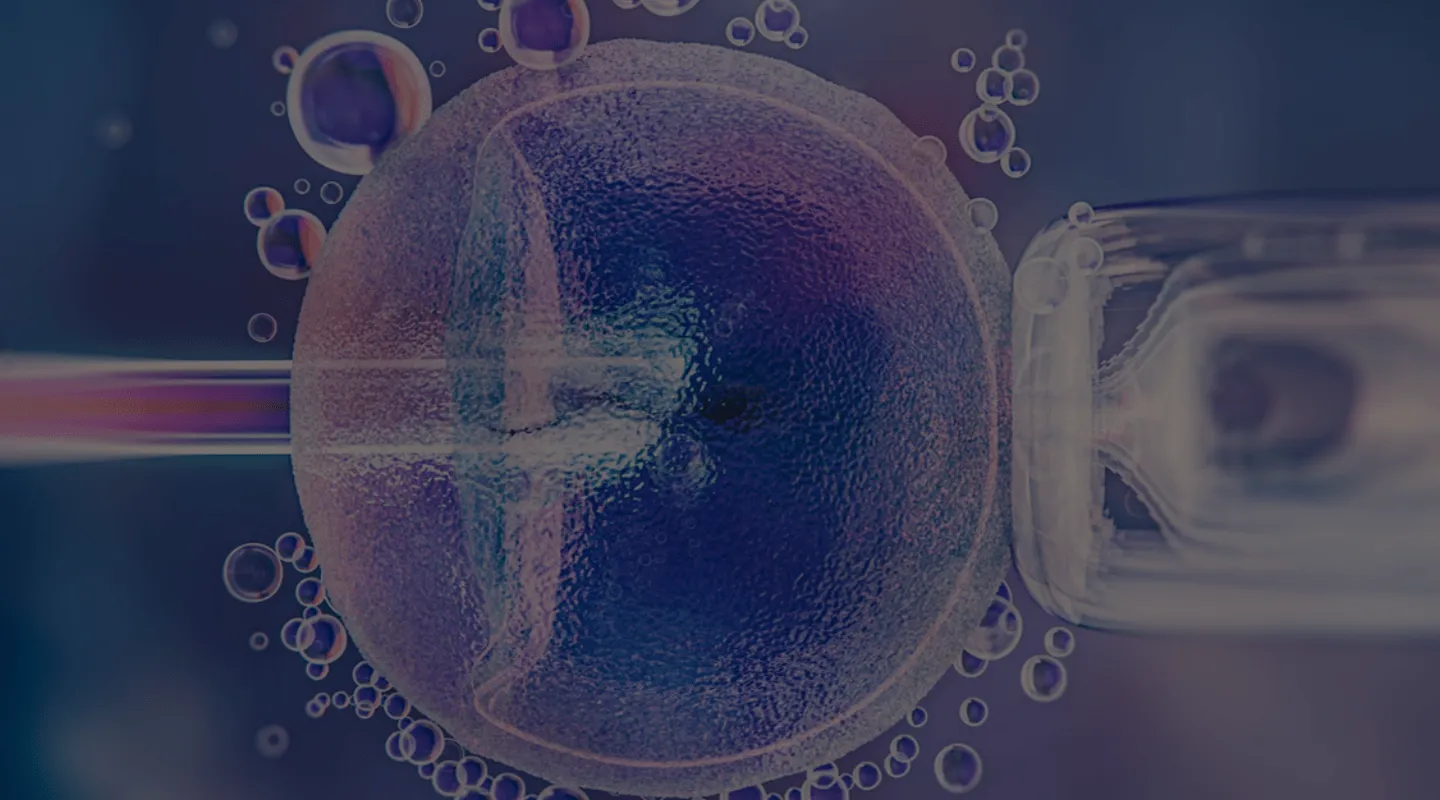
IVF: In Vitro Fertilization
Your IVF Treatment in Tunisia at Affordable Prices
Choose a medical stay with Tunisia Destination Santé and benefit from the expertise of our specialist doctors and the best healthcare facilities in Tunisia. Thanks to our tailor-made service, you will benefit from complete support in a secure and comfortable setting.
How does it work?
What is IVF?
Sometimes couples experience difficulties conceiving a child, even after several years of unprotected intercourse. This is why, in such cases, science today offers several assisted reproductive techniques, such as in vitro fertilization. Assisted medical reproduction, commonly called “PMA“, is a solution that allows those who cannot conceive naturally to have a child. In this sense, if you are having difficulty conceiving, you can consider in vitro fertilization.
What does in vitro fertilization involve?
In vitro fertilization (IVF) is an assisted reproductive method that helps infertile couples conceive a child. This procedure involves several steps, starting with ovarian stimulation to produce several mature eggs. The doctor first retrieves the oocytes by follicular aspiration, under local anesthesia, and then proceeds to the fertilization process with sperm in a specially designed container. After a few days of incubation, to allow the embryos to develop, the embryo is transferred into the woman’s uterus. The IVF process includes several key steps, including ovarian stimulation, followed by the follicular puncture procedure and laboratory fertilization.
Ovarian Stimulation
Ovarian stimulation is an important phase of IVF. Indeed, as its name suggests, it allows the ovaries to be stimulated and to produce several oocytes. This phase generally begins at the beginning of the cycle (3rd day) and lasts 10 to 12 days. Ovarian stimulation is monitored by ultrasound every 2-3 days. Monitoring tests are also carried out to adjust the hormonal dosage.
Triggering
Once the follicles have reached the right size, the trigger will be done thanks to the injection of a specific hormone. The collection of oocytes or oocyte puncture is then scheduled 36 hours after the trigger.
Oocyte Retrieval
Oocyte retrieval takes place at the IVF Center. This step is important in the IVF cycle. Indeed, it allows the specialist to collect the oocytes vaginally using a needle. The procedure is performed under general anesthesia and under ultrasound control. Oocyte retrieval is performed on an outpatient basis.
Sperm Collection
Sperm collection takes place on the same day as oocyte retrieval by natural ejaculation. For this purpose, rooms dedicated to sperm collection are provided at the IVF center. For this reason, the man is required to abstain from sexual intercourse for 4 to 5 days before sperm collection.
If a man experiences difficulties ejaculating naturally and feels blocked in his process, a possible solution is to perform a testicular biopsy in order to directly collect sperm from the testicles.
Fertilization
Once the doctor has collected the oocytes, he places them in a culture medium to fertilize them with sperm, hence the name in vitro fertilization. The result is obtained 20 hours after fertilization. In general, the embryos obtained will be kept in the laboratory under controlled temperature and atmosphere conditions until their transfer 2 to 5 days after oocyte retrieval.
Embryo Transfer
Depending on the number of embryos obtained through fertilization, the doctor transfers a maximum of two embryos 2 to 5 days after oocyte retrieval. Then, the embryos will be placed in the patient’s uterus. This procedure is also performed under general anesthesia and under ultrasound control. Embryo transfer is performed on an outpatient basis.
Embryo Freezing
If there are any untransferred embryos left, they will be cryopreserved or frozen unless the couple advises otherwise. Frozen embryos can then be transferred in another cycle. Furthermore, numerous studies have shown that the results obtained with frozen embryos are comparable to those obtained with fresh embryos.
Pregnancy
It is common for many couples to decide to return home one or two days after the transfer. As a general rule, about fourteen days after oocyte retrieval, the patient can take a pregnancy test. The Tunisia Destination Santé team will assist you in this process if you are still in Tunisia. We can only wish you good luck for your IVF attempt.
What is the price of IVF in Tunisia?
Depending on the diagnosis of the case, IVF costs from 1000 Eur. To receive a personalized quote with an affordable IVF price, please contact us. Tunisia Destination Santé can offer you packages including all medical expenses, namely the price of the entire IVF cycle but also complementary examinations or procedures such as testicular biopsy, embryo freezing, etc. TDS can also offer you accommodation packages adapted to your budget.
Your health, our priority.
Request your free quote.
IVF in Tunisia: What you need to know before you start
IVF requires good preparation for both the woman and the man. The fertility specialist will study the couple’s file to identify the causes of infertility. Then, the doctor requests IVF explorations before performing IVF in Tunisia. Once the IVF is confirmed, Tunisia Destination Santé can assist you in planning your IVF stay in Tunisia.
How does IVF in Tunisia work?
A 15-20 day stay in Tunisia should be planned. However, depending on the country of origin, some couples may shorten their stay by starting ovarian stimulation at home in collaboration with their gynecologist. Oocyte retrieval and transfer will be performed at the largest IVF center in Africa. Regarding the stay in Tunisia, most couples opt for a furnished apartment next to the IVF center or the specialist’s office. Tunisia Destination Santé can assist you in organizing your medical stay.
What are the postoperative procedures for IVF?
Oocyte retrieval and embryo transfer procedures are performed at the IVF center. Several visits are required at the center as well as at the specialist’s office. Postoperative procedures do not require any particular convalescence as all IVF cycle interventions are performed on an outpatient basis.
What is the success rate of In Vitro Fertilization?
The success rate of IVF depends on several factors
In vitro fertilization (IVF) is an assisted reproductive technique (ART) that allows the fertilization of an egg by a sperm in the laboratory. Often used to support couples facing fertility difficulties, IVF can offer an opportunity to conceive a child. However, the success rate of this method varies considerably depending on several factors such as the woman’s age, the quality of the gametes, the number of embryos transferred and the IVF technique chosen.
In general, the chances of success of IVF are linked to the woman’s age. Statistics indicate that a woman under 35 years old has an average of 40% chance of success for a first IVF, while for a woman aged 35 to 37 years old, this rate decreases to about 30%. However, after 40 years of age, the chances of success drop considerably, possibly even reaching 5% or less.
IVF can be performed several times
The first IVF can take several months before resulting in pregnancy. Furthermore, to have a chance of success with IVF, it is necessary to wait on average between 6 months and one year. The procedure involves collecting eggs and sperm, fertilizing them in the laboratory, and finally transferring the embryos into the woman’s uterus. The IVF scheme may vary depending on the individual needs of each couple or person. In this sense, the doctor can associate IVF with other assisted reproductive methods, such as intracytoplasmic sperm injection (ICSI). The latter may prove beneficial for couples facing male fertility problems as it offers a better chance of conception.
In vitro fertilization (IVF) is an assisted reproductive technology (ART) used to help couples who have difficulty conceiving naturally. The chances of success of IVF vary depending on several factors such as the woman’s age and the quality of the eggs and sperm. On average, it takes between six months and one year for IVF to succeed. Finally, the doctor may combine IVF with other ART techniques to increase the couple’s chances of conception.
Our advantages


IUI, IVF, ICSI: Which one to choose?
After studying the couple’s fertility file, the specialist will propose an Intrauterine Insemination (IUI), In Vitro Fertilization (IVF) or ICSI. Indeed, if an IVF cycle does not yield results, the doctor may recommend ICSI.
Contact and request a quote for IVF
If you are considering going to Tunisia for an IVF attempt, you can contact us. Tunisia Destination Santé will assist you in preparing your IVF file as well as organizing your stay. Do not hesitate to contact us for more information and to request a free quote without obligation.
Frequently Asked Questions
No, IVF itself does not affect the genetic diversity of embryos. Embryos are created from the parents’ gametes, so their genetic diversity depends on the parents’ genes, just as in natural conception.
Yes, thanks to a method called natural IVF where eggs are collected during a natural menstrual cycle without ovarian stimulation. This method avoids the side effects of hormonal medications.
Studies show that children born through IVF are healthy, but long-term research is ongoing to identify potential risks. To date, most data indicate that these children do not present major health problems different from those of naturally conceived children.
IVF can be stressful and emotionally challenging, which can affect the relationship between partners. However, many couples find that the experience strengthens their bond by requiring them to work together and support each other.
Yes, women who have undergone premature menopause can have IVF using donor eggs. This allows these women to carry a pregnancy even if they no longer produce eggs.
Epigenetics plays a role in regulating gene expression without altering the DNA sequence. In vitro embryo culture conditions can influence epigenetic modifications, which could have implications for the future development of the child.
Yes, IVF increases the chances of multiple pregnancies, especially if several embryos are transferred. This is why more and more clinics are opting for the transfer of a single embryo to reduce this risk.
IVF allows for the selection of the child’s sex through preimplantation genetic diagnosis (PGD), so theoretically, the sex of the embryos can be identified before transfer. However, this practice has regulations and limitations in many countries.
Yes, thanks to PGD, embryos can be tested for genetic diseases before transfer, which helps prevent the transmission of these hereditary diseases to children.
Due to the uncertainty of the results, IVF can be emotionally costly, and multiple attempts are often necessary, which can cause stress. This is why psychological support is essential to help couples get through this period.
